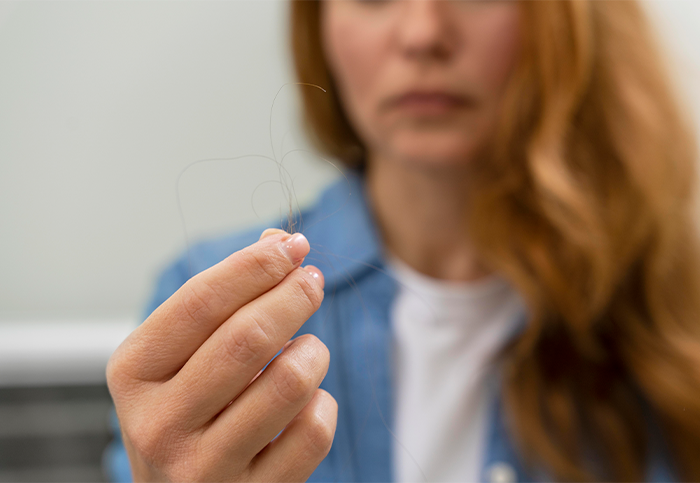How to Overcome Iron Deficiency Anemia During Pregnancy?

Iron is required for red blood cell hemoglobin formation; hemoglobin binds oxygen and transports it throughout the body. Iron also functions as an enzyme cofactor in oxidation/reduction reactions. Iron requirements vary throughout the lifecycle of a person. The need for iron rises during menstruation, pregnancy, and periods of rapid growth, such as early childhood and adolescence.
Why Iron is So Important for Pregnant Women?

Iron is an essential mineral in our body. It is mostly found in the hemoglobin, the blood protein, which carries oxygen to the different body tissues. Pregnant women need extra iron than other people because they are providing nutrition for two persons—for themselves and the fetus. So, the requirements for nutrients like iron become almost double during pregnancy which should be fulfilled by every possible means. Another reason for the high need for iron for pregnant women is that it is crucial in the formation of blood for the fetus, cognitive development, and a healthy immune system.
Iron Deficiency Anemia and Low Hb Levels in Pregnant Women:
Although the iron requirements become 2-fold when women conceive, some women can’t manage to fulfill this need resulting in iron deficiency anemia. According to NNS-2018, around 18 % of women of reproductive age are suffering from iron deficiency anemia. Iron deficiency anemia is the most common type of anemia in which hemoglobin level reduces, which carries oxygen to the different body tissues, resulting in the shortage of oxygen to the different body tissues. Pregnant women are at higher risk of developing iron deficiency anemia, due to which their hemoglobin levels become lower than normal. The normal hemoglobin levels (Hb) for women are 12-14 g/dL.
According to the World Health Organization (WHO) classification of anemia for pregnant women considering Hb level is as follows;
In mild anemia the hemoglobin concentrations in women are 9.0 to 10.9 g/dL; in moderate anemia, they have 7.0 to 8.9 g/dL, however, in severe anemia, the hemoglobin levels critically drop to < 7.0 g/dL which is the most critical situation for the pregnant women resulting in many complications for the mother as well for the baby.
What are the Complications in Pregnancy Due to Iron Deficiency?
• High risk of premature birth of the baby
• Low birth weight babies
• Complications in giving birth
• Postpartum depression
What are the Risk Factors of Iron Deficiency Anemia in Pregnant Women?
Pregnant women become at higher risk of developing iron deficiency anemia due to any of the following reasons:
• When they have two consecutive pregnancies
• When they have more than one child in a single pregnancy
• When they frequently suffer morning sickness (nausea and vomiting)
• When they don’t consume enough amount of iron-rich foods
• When they have a heavy menstrual flow before pregnancy
• If they have had anemia before their pregnancy
What are the Symptoms of Iron Deficiency Anemia in Pregnant Women?

• Extreme fatigue such that the daily tasks can’t be accomplished properly
• Moderate to extreme weakness
• Pale skin especially visible around the eyes, on the hands, and the whole face
• Headache and dizziness
• Cold hands and feet
• Inflammation or soreness of the tongue
• Spoon-shaped and brittle nails
• Loss of appetite but cravings for non-nutritive substances, such as ice, dirt, or chalk
What Causes Iron Deficiency in Pregnancy?
• Low iron intake in the body
• Difficulty in absorbing nutrients
• Deficiency of vitamin C
• Intake of nutrients that interact with iron and prevent its absorption
How To Overcome Iron Deficiency During Pregnancy?

Consuming iron-rich foods, taking vitamin C along with iron intake, and consuming a good quality iron supplement just as Nutrifactor’s Fero & Fero Syrup can help overcome iron deficiency during pregnancy and fulfill the iron requirements of both mother and fetus.
The food sources of iron include red meat & poultry, dark green leafy vegetables, legumes, dried foods, and seafood. However, iron from animal sources (heme iron) has a higher absorption rate in the body than from plant sources (non-heme iron).
What Are the Benefits of Consuming Iron Supplements?
Nutrifactor’s iron supplements contain iron along with folic acid, vitamin B12, and vitamin C, all of which are essential nutrients for pregnant women that work jointly to support each other’s function.
1. Iron and B12 are mainly involved in the formation of healthy red blood cells.
2. Folic acid and vitamin B12 contribute to the cognitive and nervous system development of the fetus. Furthermore, vitamin C stimulates the absorption of iron in the body.
3. Iron helps reduce the risk of iron deficiency anemia in both, mothers and newborns.
4. Iron is also needed for the formation of myoglobin, a muscle protein, that transfers oxygen to the muscles. Therefore, athletes can also take iron supplements to boost their workout capacity.
Precaution:
With those supplements for pregnant women, it is always recommended to consult your healthcare professional before using any supplement.
References:
• https://www.mayoclinic.org/healthy-lifestyle/pregnancy-week-by-week/in-depth/anemia-during-pregnancy/art-20114455
• https://pubmed.ncbi.nlm.nih.gov/25083899/
• https://www.ncbi.nlm.nih.gov/pmc/articles/PMC4375689/
• https://www.ncbi.nlm.nih.gov/pmc/articles/PMC3917507/
• https://www.mayoclinic.org/diseases-conditions/iron-deficiency-anemia/symptoms-causes/syc-20355034
• https://www.healthline.com/health/normal-hemoglobin-levels



